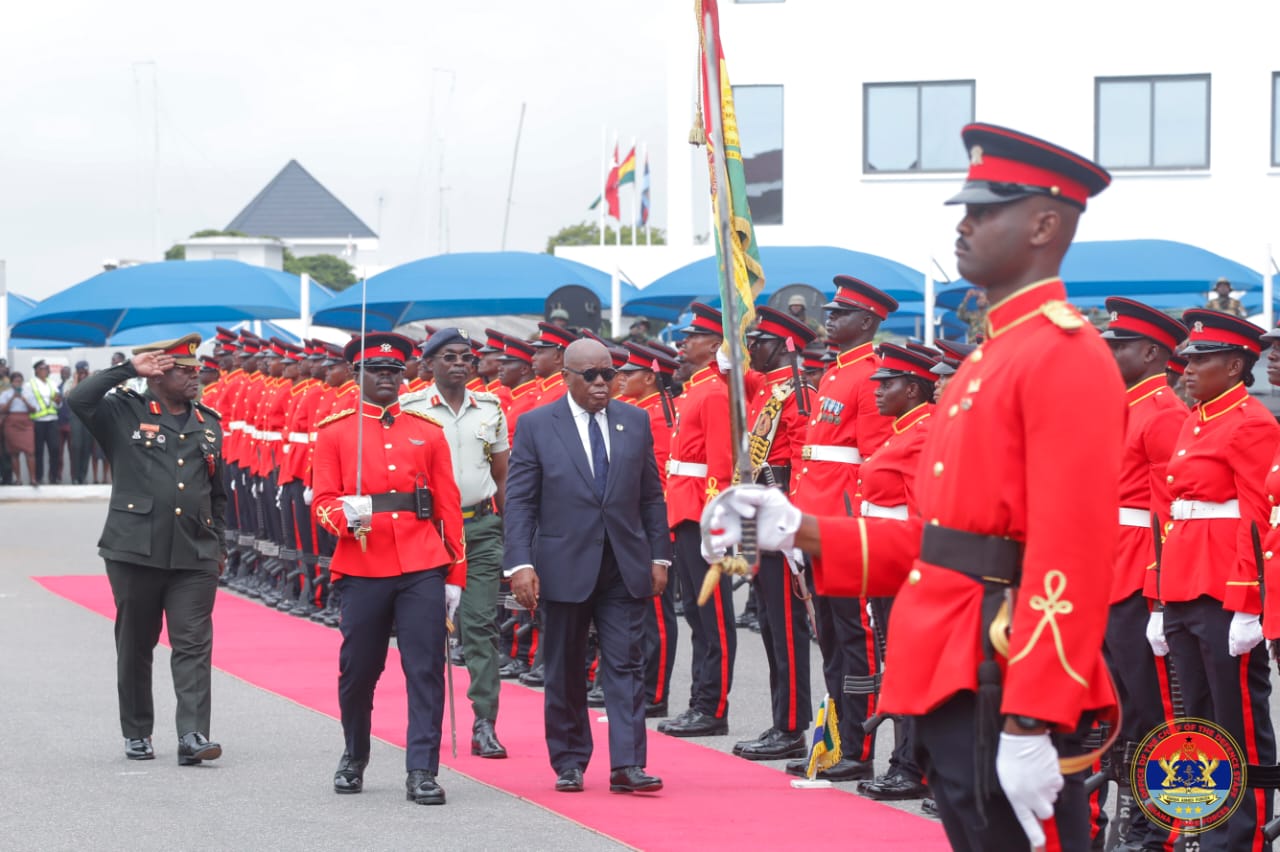By LIEUTENANT COLONEL GERSHOM GAMELI KLU-AMEREKA, GHANA ARMY

Recently, there have been proposals to integrate military training into Ghana’s Senior High School curriculum. Though the proposal has sparked some debates in a section of the public and critics, both civilians and military personnel, have questioned the need of involving the military in the education curriculum of the country.
The concerns, no doubt may be rooted in Ghana’s past with military regimes, but may overlook the broader and more constructive roles the military play in national development and governance.
The integration of military values and expertise into state agencies, as well as society at large, offers transformative benefits that transcend traditional defense roles. The military’s traditional role of defending the territorial integrity of the country is an established canon.
In contemporary societies, the military embodies willpower, discipline and a commitment to excellence, qualities that significantly enhance governance and civic engagement. This evolution has led to the integration of military expertise within various state agencies, fostering a sense of duty and patriotism among citizens.
This expanded role is vividly demonstrated in Rwanda’s post-genocide reconstruction, where the military was central to rebuilding the nation. The disciplined approach and commitment to national service that the Rwandan military brought to the table were crucial in stabilizing the country, rebuilding infrastructure, fostering a renewed sense of national unity, overall governance and social transformation.

Ghana can draw valuable lessons from Rwanda’s experience, recognizing the military as a vital national resource for peace-time development and post-crisis recovery. Military training instills a high level of discipline and a commitment to efficiency, patriotism and national orientation. When military personnel are integrated into public administration, they bring these attributes, helping streamline bureaucratic processes, reduce corruption and improve governmental efficiency.
This disciplined approach ensures, that the State functions, duties and responsibilities are carried out with precision and reliability, fostering public trust in government institutions. The National Service Act of 1980, which includes mandatory military training, already acknowledges the military’s role in shaping disciplined citizens, prepared to serve the nation.
The military’s unparalleled experience in crisis management and emergency response is invaluable. Military personnel, trained to handle high-pressure situations, make quick decisions and coordinate large-scale operations, are essential assets during natural disasters, public health emergencies and other crises.
Integrating military expertise into state agencies responsible for emergency management enhances the country’s preparedness and response capabilities, ultimately saving lives and resources. Military leadership is grounded in honor, integrity, and accountability.
By incorporating military leaders into governance roles, state agencies can benefit from strong ethical frameworks and leadership models that prioritize the common good. This leads to more transparent, accountable governance, strengthening the relationship between government and citizens. Additionally, the military, as a symbol of national pride, can promote patriotism and national unity, especially, in multi-cultural societies.
This active participation in state functions and public initiatives inspires citizens to engage more actively in civic duties, contributing to social cohesion and stability. Strategic thinking and long-term planning are core military competencies. When applied to governance and imbibed in students from the lower to high levels of the educational ladder, these skills improve policy development and implementation in governance, ensuring, that state initiatives are proactive and sustainable and students are skilled with long term strategic thinking and analytical abilities and proper planning.
Military expertise helps create comprehensive strategies that address current challenges while anticipating future needs, promoting national security and sustainable development. Beyond these immediate benefits, the military and defense establishments serve as a vital national strategic pool for cultivating expertise essential for national development and leadership.

Their psychology is shaped towards meaningful overall development and nation-building. Therefore, by leveraging the discipline, leadership, crisis management capabilities, and strategic thinking of military personnel, Ghana can enhance its efficiency, ethical standards, patriotism and long-term planning.
This symbiotic relationship between the military and their civilian counterpart will lead to a more robust and resilient governance structure, ultimately benefiting the entire nation and helping to rebuild and transform society in a positive direction.
Indeed, their integration, presence and training in schools in Ghana, will greatly enhance the image of our education and the education sector in the country and internationally, as well as change and transform the result dynamics of our students yearly.
COMMENTARY
